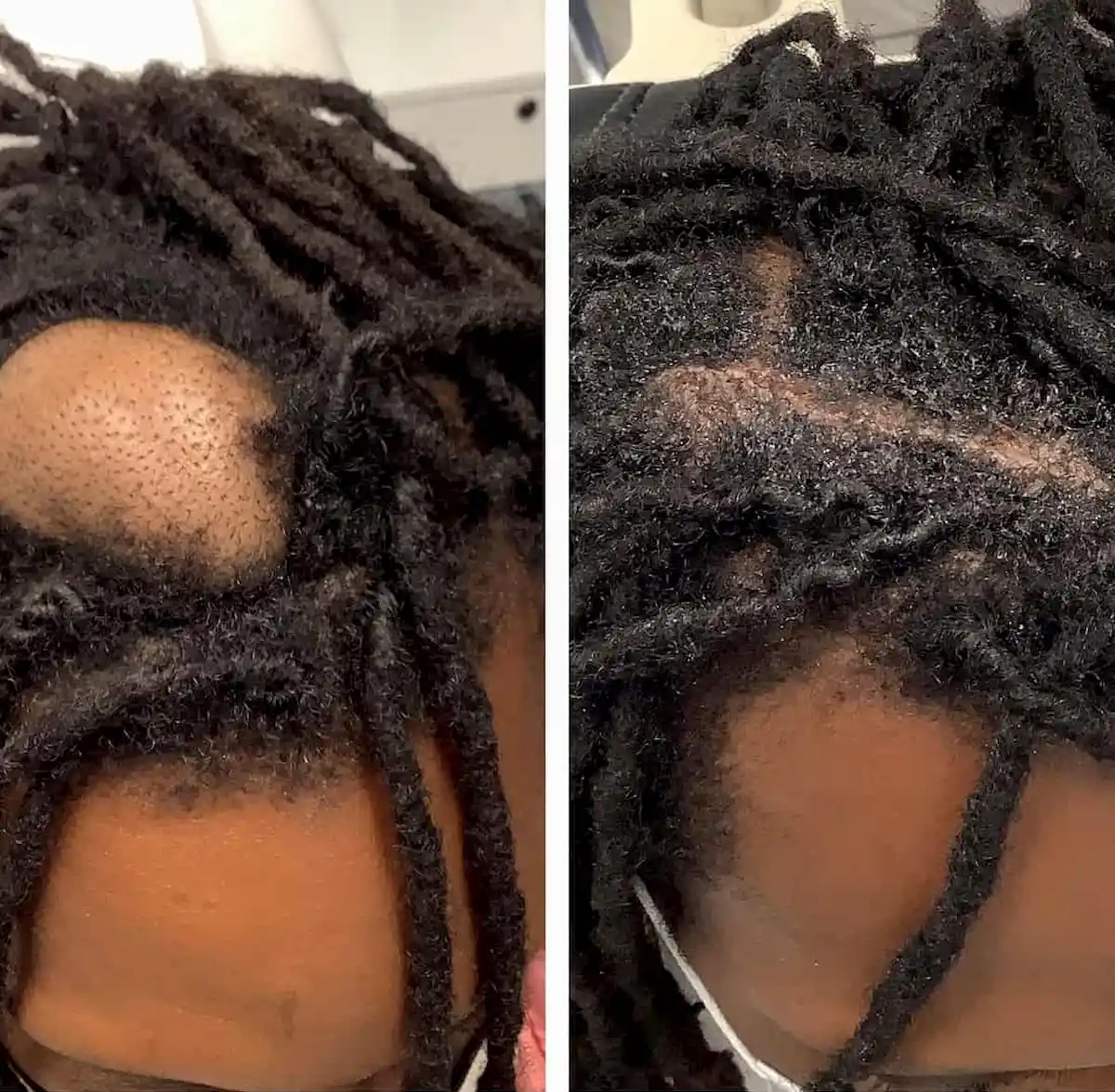If you’re considering cyst removal or have concerns about your skin’s health, we are here to help. Contact us today for a free consultation.
Cysts are common skin concerns that many individuals face at some point in their lives. While most cysts are benign, they can sometimes cause discomfort, become infected, or create cosmetic concerns. Dermatologists are the go-to experts for safely and effectively removing cysts for those seeking treatment.
At Jacksonville Dermatology & Cosmetic Surgery, we are here to help.

Understanding Skin Cysts: What Are They?
A skin cyst is a closed, sac-like structure under the skin that contains fluid, pus, or other material. Cysts can form anywhere on the body, ranging from very small to large, noticeable lumps. They are often non-cancerous and benign, but their appearance and location can sometimes be bothersome or painful.
Types of Skin Cysts
At Jacksonville Dermatology & Cosmetic Surgery, we most commonly see the following types of cysts:
- Epidermoid cysts: These are the most common type of cyst, and they form when skin cells grow into a sac in the lower layers of the skin. They often appear on the face, neck, or trunk.
- Sebaceous Cysts: These cysts are filled with sebum, an oily substance that usually lubricates the skin. They typically occur on the scalp, face, back, or scrotum.
- Pilar Cysts: Often found on the scalp, pilar cysts are firm, round lumps that form from hair follicles.
- Ganglion Cysts: These fluid-filled cysts form around joints or tendons, commonly on the wrists or hands, but may also appear in other areas.
- Milia: Small white or yellow cysts that appear on the face, particularly around the eyes, and are caused by trapped keratin.
When to See a Dermatologist for a Cyst
While many cysts are harmless and may disappear independently, certain circumstances warrant a visit to a dermatologist. At Jacksonville Dermatology & Cosmetic Surgery, we encourage patients to seek expert evaluation if they experience any of the following:
Signs to See a Dermatologist:
- Pain or Discomfort: If the cyst becomes painful, especially when pressing on or near nerves, muscles, or other structures, it may need removal.
- Rapid Growth: A rapidly increasing cyst may indicate an underlying issue.
- Infection: Symptoms like redness, warmth, tenderness, or discharge are signs of infection that may require urgent treatment.
- Cosmetic Concerns: Many patients opt for removal to improve their appearance if the cyst is located in a noticeable area, like the face or neck.
- Uncertainty About the Diagnosis: Sometimes, a lump may resemble a cyst but could be more serious. Dermatologists are trained to diagnose skin conditions and ensure benign growth accurately.
Why You Shouldn’t Remove a Cyst at Home
Attempting to pop or drain a cyst at home is strongly discouraged. Doing so can lead to infection, scarring, or incomplete cyst removal, which may cause it to return. Dermatologists are equipped with sterile tools and techniques to remove cysts safely, minimizing complications and recurrence.

The Cyst Removal Process: What to Expect
Our dermatologists at Jacksonville Dermatology & Cosmetic Surgery take a patient-centered approach to cyst removal. We aim to ensure that every patient feels comfortable and informed throughout the procedure.
Initial Consultation
Our dermatologists will examine the cyst during your first visit and discuss your concerns and treatment options. We may take the following steps:
- Physical Examination: We will assess the size, location, and type of cyst.
- Imaging or Biopsy (if needed): In rare cases, an ultrasound or biopsy may be required to confirm the diagnosis, especially if the cyst is deep or hard to distinguish from other lumps.
- Treatment Plan: We will recommend the best removal method based on the diagnosis. This may include surgical excision, drainage, or another minimally invasive procedure.
Cyst Removal Methods
Different removal techniques may be employed depending on the type and location of the cyst. The most common methods at St. Louis Dermatology & Cosmetic Surgery include:
- Surgical Excision
- Procedure: This is the most definitive treatment, where the cyst and its entire capsule are surgically removed. It is the most effective way to prevent the cyst from recurring.
- Anesthesia: Local anesthesia is applied to numb the area before the excision.
- Duration: The procedure typically takes 15-45 minutes, depending on the size and location of the cyst.
- Aftercare: Stitches may be required, and the area should be kept clean and dry to ensure proper healing.
- Incision and Drainage
- Procedure: This method involves making a small incision in the cyst to drain its contents.
- Anesthesia: Local anesthesia is used to numb the area.
- Duration: The procedure is quick, often taking less than 20 minutes.
- Considerations: Drainage can provide temporary relief but does not remove the cyst wall, so recurrence is more likely than surgical excision.
- Steroid Injections
- Procedure: For inflamed or irritated cysts, steroid injections can help reduce swelling and shrink the cyst.
- Duration: Injections are administered quickly, but multiple sessions may be needed to see results.
- Considerations: This option may not permanently remove the cyst but can help manage its symptoms.
Recovery After Cyst Removal
Post-procedure care is essential to ensure optimal healing and prevent infection. Our dermatologists at St. Louis Dermatology & Cosmetic Surgery will provide detailed aftercare instructions based on the removal method.
- Stitches: If stitches are used, they are usually removed within 7-10 days. Keeping the area dry and avoiding strenuous activities until fully healed is essential.
- Pain Management: Mild discomfort or swelling is common for a few days after the procedure. Over-the-counter pain relievers like ibuprofen can help manage this.
- Signs of Infection: Monitor the incision site. Contact your dermatologist immediately if you notice increased redness, swelling, discharge, or a fever.
- Scarring: Minimal scarring may occur depending on the size and location of the cyst, but proper wound care and following dermatologist recommendations can minimize visible scars.
Risks and Complications of Cyst Removal
While cyst removal is generally safe, it’s important to be aware of potential risks and complications. At St. Louis Dermatology & Cosmetic Surgery, we prioritize patient safety but always provide full transparency about possible outcomes.
Possible Risks Include:
- Infection: Like any surgical procedure, there is a small risk of infection. Following aftercare instructions reduces this risk.
- Scarring: While dermatologists are skilled at minimizing scars, some scarring is inevitable, especially for larger cysts.
- Cyst Recurrence: If the cyst is not entirely removed, particularly in cases of incision and drainage, there’s a risk that it may return.
- Bleeding or Bruising: Minor bleeding or bruising may occur during or after the procedure, but these symptoms usually resolve quickly.
Cost of Cyst Removal at St. Louis Dermatology & Cosmetic Surgery
The cost of cyst removal can vary depending on the type of cyst, the removal method used, and whether the procedure is considered medically necessary or cosmetic.
Insurance Coverage
- Medical Necessity: If the cyst is painful, infected, or suspected of cancer, your health insurance may cover removing it.
- Cosmetic Removal: Insurance may not cover the procedure if the cyst is removed purely for cosmetic reasons. Our team can provide cost estimates during your consultation.
We offer a range of treatment options to meet your medical and cosmetic needs. Our staff can assist with navigating insurance and payment options to ensure the best possible experience.
To View our Pricings, Visit our Pricing Page
Choosing Jacksonville Dermatology & Cosmetic Surgery for Cyst Removal
At Jacksonville & Cosmetic Surgery, we pride ourselves on offering expert care, compassionate service, and the latest technology in skin treatment. Here’s why patients trust us for their cyst removal:
- Experienced Dermatologists: Our board-certified dermatologists have extensive experience diagnosing and removing cysts safely and effectively.
- Minimally Invasive Techniques: We use advanced tools and techniques to minimize discomfort and downtime while providing the best cosmetic outcomes.
- Patient-Centered Care: We prioritize your comfort and safety at every step, from consultation through recovery.
- Comprehensive Services: Besides cyst removal, we offer a full spectrum of dermatological treatments, ensuring that all skin concerns are addressed under one roof.
Frequently Asked Questions (FAQ)
How can I tell if my cyst needs to be removed?
Is cyst removal painful?
How long does the cyst removal procedure take?
Will cyst removal leave a scar?
Can I remove a cyst at home?
Can cysts come back after removal?
What should I do if my cyst becomes infected before my appointment?
How long is the recovery time after cyst removal?
Can I drive home after the cyst removal procedure?
Does insurance cover cyst removal?
How do I prepare for a cyst removal procedure?
Contact Us Today to Schedule an Appointment
If you’re considering cyst removal or have concerns about your skin’s health, the expert team at Jacksonville Dermatology & Cosmetic Surgery is here to help. With years of experience in diagnosing and treating various skin conditions, we offer advanced techniques for safe and effective cyst removal.
GET IN TOUCH

